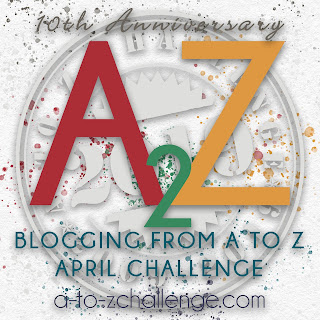
Yes, I know the dictionary defines xesturgy as polishing, as with stones, but in this case we’re looking at polishing your writing. Think of each word in your story as a stone, diamonds maybe, or rubies or opals, and imagine polishing each one until it shines.
Polishing is the last step for your manuscript before it’s ready to go out into the world. It’s also a very important step.
By the time you get to polishing, you should have already done the hard work, fixing plot holes, finding continuity errors, character inconsistencies and fixing any tense or grammar issues. Now it’s time to tighten things up to make them sing.
When I’m polishing, I like to look for overused words and replace or remove them where possible. Common culprits are words like ‘just’, ‘think’, ‘really’, ‘very’, ‘quite’, ‘that’, ‘as’, and ‘then’, but everyone has their own crutch words. Do your characters nod or shrug far more often than regular people? Change it up. Give them other actions.
Removing unnecessary adverbs will also strengthen your prose. If your characters are talking loudly or moving slowly, why not find stronger verbs to describe these things, like shouting or meandering? Also look for things that are obvious within the context. A character doesn’t need to sit down on the floor, just sit on the floor - the down is implied.
If you have a lot of dialogue in your text, check your dialogue tags. Said is the best tag because it tends to be virtually invisible to readers while words like ‘declared’ or ‘trumpeted’ draw attention to themselves. But even ‘said’ becomes noticeable when it’s overused, so if you have a lot of dialogue, try to get rid of some tags by using action to indicate who is speaking.
Eg. “My mother’s coming this weekend.” Jade rolled her eyes.
Dale returned the gesture. “I feel your pain.”
The other thing to check when polishing is your punctuation. Do you overuse certain things like exclamation marks, ellipses or semi-colons? Do you sprinkle commas liberally, but miss their proper placement every time? Reading aloud will help you find misplaced commas and other wonky punctuation because the rhythm will be off.
Reading aloud will also help you figure out if all your sentences tend to be of similar length and construction. To keep writing dynamic, you need sentences of differing lengths and styles. If you find you have a whole lot of really long ones, try chopping them up and making several shorter ones. This is especially useful in action scenes where shorter, punchier sentences create the feeling of action.
By the time you have done all these things, your manuscript should be shining like a diamond necklace.
What are your favourite tips for the xesturgy stage of your project?



4 comments:
I found a lot of polishing was needed for a manuscript I'd completed a few years back when I returned to it later. The whole idea of writerly "crutches" is an interesting one. Sometimes you realize you're doing it as you're doing it. It's also a helpful exercise to do some flash fiction, needing to weed down the wordcount and discovering what can be cut if you really need to.
I have found that I love to do this polishing stuff for other people! My brother has been writing his own posts for a business blog but he will admit he is a phonetic speller, writes just like he talks, and gets kind of crazy when he's passionate about what he's saying. It's actually fun to clean them up for him and check them out on Yoast. Thanks for good reminders in this post.
https://shirleyjdietz.com/2019/04/27/xeriscape-of-the-canyon/
A very important step than some seem to skip because they find it tedious.
Ronel visiting with the A-Z Challenge music and writing: Covers of my favourites
Xesturgy rings true with me. I'm polishing rocks often.
Post a Comment